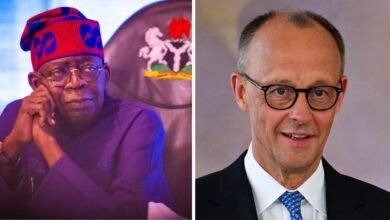News
How the Borno Governor, Prof. Babagana Zulum, Got It Wrong on Insecurity

Today, political leadership has increasingly become intertwined with media spectacle. Leaders want to be populists and charge their people through propaganda, fear and admiration—all at the same time—to curry their affection and loyalty. The Governor of Borno State, Professor Babagana Umara Zulum may be guilty of this. Known for his hands-on approach and ubiquitous presence on the streets of Maiduguri, Professor Zulum has captured national attention as a governor who appears to be perpetually in motion—inspecting schools, visiting displaced persons camps, and engaging directly with the citizenry. This ground-level visibility has earned him praise as a “people’s governor,” a leader who seems to live among the governed rather than above them. However, while this populist posture has served to elevate his public profile, it has also contributed to a serious misstep in the sensitive domain of security.
Professor Zulum’s profound love for the media—both conventional and digital—has become a hallmark of his administration. His engagements are regularly amplified by his media aides and echoed by a network of social media sympathizers. He has become something of a political brand, whose value is continually reinforced through publicized visits, interviews, and statements that often trend online. But there is a critical distinction between political visibility and strategic discretion—a line that the governor has increasingly blurred, to the detriment of Borno’s security landscape.
In recent months, Professor Zulum has adopted a worrying trend of raising public alarms over security threats in Borno. In April 2024, he publicly disclosed to journalists that terrorists were regrouping in parts of the state and planning attacks, specifically citing areas in the Lake Chad region and hinterlands of Borno North. Again, in May 2024, he granted interviews to multiple news platforms where he raised fresh concerns about the deteriorating security situation, warning that if immediate action was not taken, the insurgency might regain lost ground. While these warnings may appear to stem from a genuine concern for the safety of his people, their broadcast through the media—rather than confidential security channels—reflects a fundamental misunderstanding of how best to address such existential threats.
Security, by its very nature, is not a matter for public theater. Disclosing intelligence-related information through interviews and press statements does little to deter attackers. If anything, it emboldens them by signaling existing weaknesses in the security architecture. More troubling is the fact that such public disclosures compromise the operational discretion that security agencies require to act decisively and preemptively. When high-ranking officials publicize imminent threats, they not only alarm the populace but also forewarn the adversary, effectively eroding the element of surprise, which is a critical factor in counterinsurgency operations.
Moreover, such statements from a sitting governor risk undermining public confidence in Nigeria’s security apparatus. By repeatedly vocalizing that the state remains vulnerable and susceptible to insurgent attacks, Professor Zulum unwittingly casts doubt on the capacity of national security institutions. This can breed public fear, encourage self-help measures, and even inspire sympathy for non-state actors who project themselves as alternative protectors of the people.
It is imperative that Prof. Zulum reconsiders this approach. Firstly, as a Governor elected under the auspice of the All Progressives Congress (APC), Professor Zulum has unfettered access to provide his intelligence to the Federal Government. Secondly, and in fact, the Vice President of the Country, Kashim Shettima is not just his former boss, but also from the same State as he is. If anything, he can channel his complaints and intelligence through the Vice President, who can in turn share same with the President and invariably the security agencies.
The Federal Government has access to classified information, strategic assets, and the institutional bandwidth to respond effectively to security challenges. Rather than amplifying threats through the press, the governor ought to funnel his intelligence discreetly to his sources within the government, as they are better positioned to mount informed and surgical responses.
Effective leadership in the face of terrorism is not always about visibility. Professor Zulum needs to understand this. In fact, the most effective contributions are often made quietly, behind the scenes, away from the cameras and the microphones. By choosing discretion over drama, the Borno State Governor could empower Nigeria’s security forces with actionable intelligence and operational cover, giving them the room they need to tackle insurgents and protect communities. This may not make him a trending topic or secure applause from the gallery of online commentators, but it will do something far more valuable—it will help secure the lives and livelihoods of the people of Borno.
In a state like Borno, which remains the epicenter of Nigeria’s counterterrorism struggle, the stakes are too high for political posturing. Professor Zulum’s energy, passion, and proximity to the grassroots are commendable, but they must now be matched by strategic discipline. Silence, in the right moments, is not weakness; it is wisdom. And wisdom, not noise, is what the people of Borno need now more than ever.




